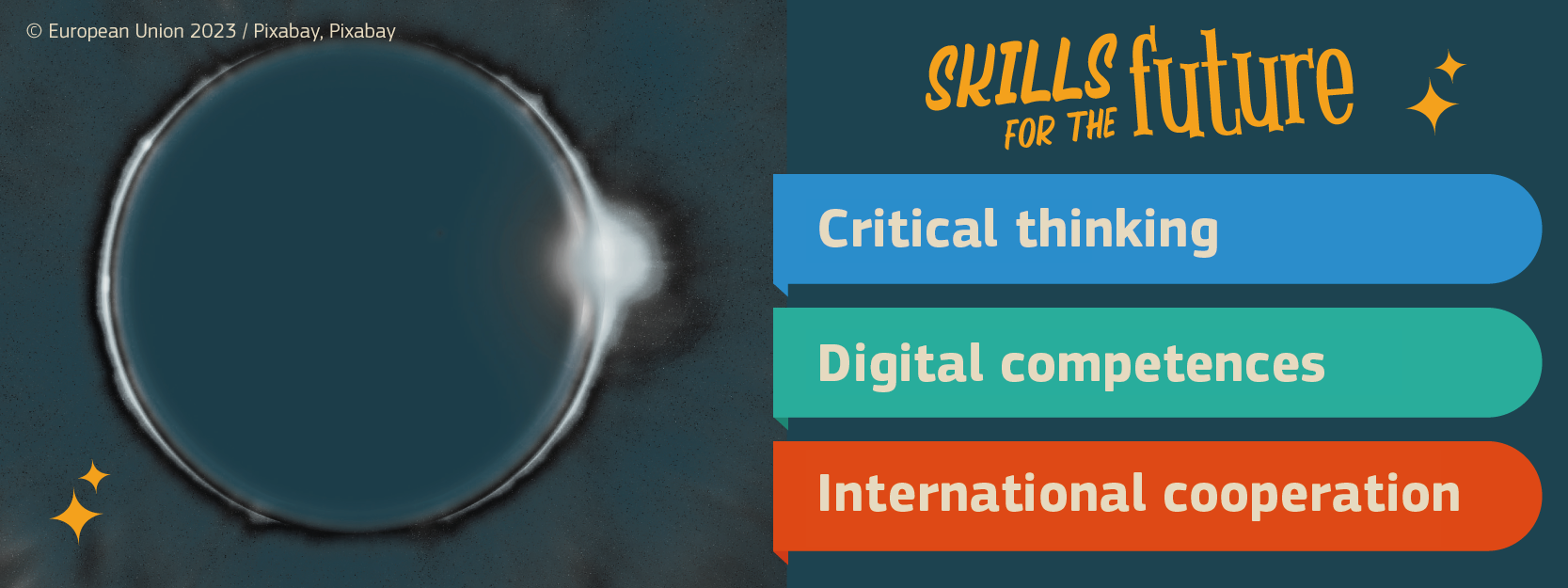Andrea Maksimović: Do you notice anything unusual?

Short bio
I am 29 years old and have four years of experience in the field of adult education at the Studium School - an institution for adult education. I became familiar with adult education through my work as an andragogist and English language teacher, and then through my work in the university’s project department, where I still work today as a manager of the creation and implementation of EU projects.
My story
In the future of adult education, I see an accessible and adaptable system that will enable adults to continuously improve throughout their lives. The key elements in this process will be inclusivity and technology. Inclusiveness ensures that education is accessible to all, regardless of age, socioeconomic status, or previous education. Technology will play a key role in facilitating access to educational resources, enabling distance learning and providing access to online courses and materials. In addition, independent learning and research among adults will be promoted. Taking responsibility for one's own personal and professional development will be encouraged in order to more easily adapt to changes in the labor market and society. This new approach to adult education will create a strong foundation for their continued evolution and contribution to society.
Did you read the above paragraph? Read it again - do you notice anything unusual? Namely, the text was not written by an expert in adult education, but by a digital tool, in this case, Chat GPT.
This year marked the beginning of the widespread use of learning and teaching tools powered by artificial intelligence, and experts predict that this is just the beginning and that soon most business processes will be based on such technology. We can consider this as good news; it will facilitate access to information for our students, and serve as a tool for personalising and innovating classes for lecturers. At the same time, it is a fact that such tools have also increased the possibility of plagiarism, alienation of the individual in modern society, and can negatively affect the work habits and motivation of participants. That is why it is crucial to accompany any technological progress with work on developing a critical way of thinking and to think about the ethical implications of this accelerated development of technology. We must not forget that developing digital competences does not mean that we only learn to use information technologies, but we also learn to use them in a safe, creative and critical way.
For this reason, in the past year at the Studium School, we have provided opportunities for our employees and students to improve their digital competencies. We achieved the above through projects in which our employees attended courses and training in Spain, Italy, Romania, Austria, Turkey, Norway, Slovenia and other countries. In addition, we decided to act ourselves and hosted almost 20 experts in adult education with whom we shared knowledge on how to effectively apply digital tools for gamification in adult education. In addition, through the ICT4Te@chers project, in cooperation with Norwegian partners and A1 Croatia, we developed a training program for teachers and other educational staff based on topics such as analytical data processing, artificial intelligence, agility in education and the use of ICT tools in working with students with learning disabilities. In this way, we build the appropriate capacity for facing the challenges of the future as efficiently as possible.
We learnt an important lesson from the aforementioned experience; technological progress takes place quickly and it is sometimes impossible to predict the challenges that the future of adult education will bring, but with the development of criticality, responsibility and awareness we can successfully respond to them.
Finally, let's return to the paragraph at the beginning of the text. It may sound good, but we believe that Chat GPT cannot replace the valuable lessons and memories that we, together with our participants, have learnt and gained in cooperation with colleagues from all over the world.
3 Skills for the future?






Critical thinking is crucial
I completely agree that the recent spike in using AI to work on something in a fast manner has also raised a lot of questions as to how there might be a decline in critical thinking because ‘the robot is thinking in my place’. I believe the reality is far less dramatic – we still are relying on the human mind when it comes to proofreading and adapting the AI’s created product. To ensure we don’t end up with plagiarism and other mistakes revealing themselves in the AI’s creation, we must learn about ways to use such tools in a safe, creative, and critical way, as mentioned in the post.